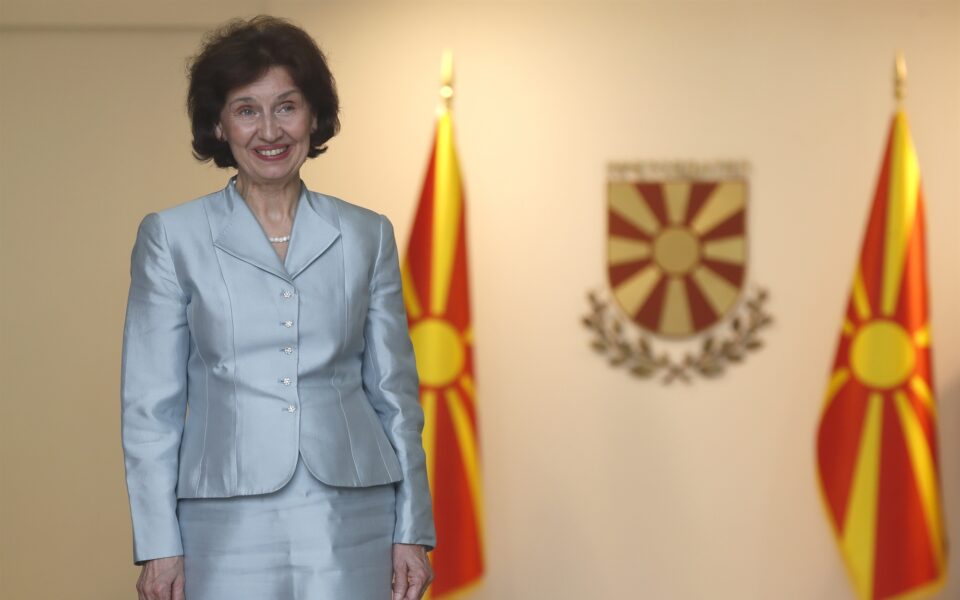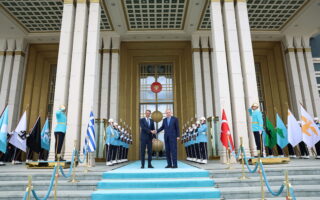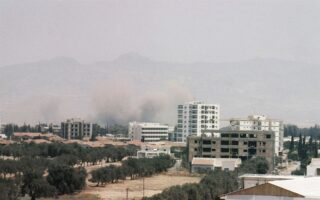Can the Prespa accord be changed or annulled?

On the day the Prespa Agreement signed between Greece and North Macedonia was ratified by the Greek Parliament, the then leader of the main opposition and current Prime Minister Kyriakos Mitsotakis, assailing ing its text, had declared on the floor of the Parliament: “So, if the Prespa Agreement is ratified, it will not be possible to annul it the next day, as it supersedes any law. International law makes it immutable. Any modification of it is extremely difficult. Any violation of it could mean international isolation and an international court case for our country” (January 24, 2019). The Prespa Agreement was eventually ratified by both countries. What applies to us applies equally to our neighboring country.
The electoral dominance of the center-right nationalist VMRO-DPMNE party is the litmus test that will challenge the durability of the Prespa Agreement. The first problem began with the de facto refusal of constitutional law professor Gordana Siljanovska-Davkova to be sworn in as president under the internationally agreed and constitutionally recognized name of her country, which is North Macedonia. We will now see what the incoming government will do in the coming days. Most likely, a kind of game will begin in which Skopje will occasionally use a name other than “North Macedonia.”
Can the VMRO leadership unilaterally terminate the Prespa Agreement without any particular reason? Article 20(9) states that its provisions “shall remain in force for an indefinite period of time and are irrevocable. No modification of this agreement contained in Article 1(3) and Article 1(4) shall be permitted.” What does this mean? That we have a framework agreement that will forever govern the relations between the two states. Although all the provisions are expressly described as “irrevocable,” the characterization is challenged by the fact that two provisions in particular are described as non-amendable. These are the disputed provisions 1(3) and 1(4) concerning the use of the name “North Macedonia,” the recognition of “Macedonian/citizen of the Republic of North Macedonia” citizenship and “Macedonian” language.
This means that both sides took into account the possibility of a challenge to the agreement. They chose not to refer to such a possibility explicitly. However, they determined that, in such a case, it is impossible to annul the disputed paragraphs 1(3) and 1(4) which remain binding. That is, any termination of the agreement does not release Skopje from the obligation to use the term “North Macedonia.” The only way to change that would be if both countries agreed to change the entire agreement with a later one, including the specific paragraphs. However, given the positions of the two sides, such a possibility is rather unlikely. On the contrary, we will continue to live with the contradiction that the state is called North Macedonia, but its language is not called North Macedonian.
The most logical thing to do is to follow the procedure set out in the agreement: When a material breach of the agreement is established, Athens will start by notifying Skopje
So how does Greece react? Could it request termination or suspension of the agreement due to a material breach thereof (Article 60 of the Vienna Convention on the Law of Treaties)? In such a case, Skopje’s obligation to use the name North Macedonia will automatically end. Let us not forget that the very first provision of the Prespa Agreement, in Article 1(1), states that, upon its entry into force, the Interim Agreement of 1995 is terminated. In other words, because the Prespa Agreement entered into force in early 2019 and the Interim Agreement has since been abrogated, there is no longer any “return” to the name FYROM. Those Greeks who hope, as they say, for the annulment of the agreement, should keep this in mind. As things have stood since the beginning of 2019, a termination of the agreement will leave that country called “Macedonia.” Then we will also lose the only benefit we got from the Prespa Agreement: the use of the name “North Macedonia.” It is not pleasant for many of our fellow citizens, but this is the reality that took shape at the beginning of 2019, over which New Democracy and PASOK had also warned in Parliament, as well as many analysts, including us in our relevant book that was published at the time.
Therefore, the most logical thing to do is to follow the procedure set out in Article 19 of the agreement: When a material breach of the agreement is established, as in this case, Athens will start by notifying Skopje. This process may even end up at the International Court of Justice. The Prespa Agreement has many difficulties. Serving the national interest and effectively protecting the identity of Greek Macedonia require the development of a sober, cool and systematic policy on our part. This will allow us to maintain the positive attitude of the international community, which is perhaps the most effective lever of pressure.
Angelos Syrigos is a New Democracy MP and associate professor of international law and foreign policy at Athens’ Panteion University. Evanthis Hatzivassiliou is a professor of contemporary history at the University of Athens, and general secretary at the Hellenic Parliament Foundation for Parliamentarism and Democracy. They recently co-authored the book titled “Metapolitefsi 1974-75: 50 Questions and Answers,” published by Patakis in Greek.





